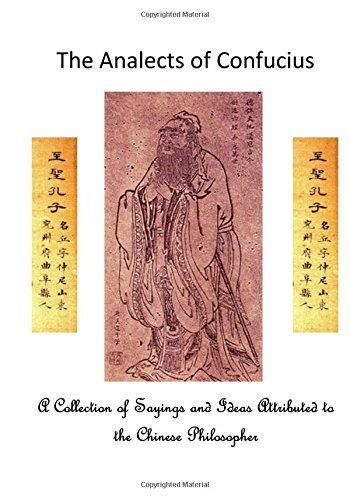
The Analects of Confucius A Collection of Sayings and Ideas Attributed to the Chinese Philosopher
The Analects of Confucius A Collection of Sayings and Ideas Attributed to the Chinese Philosopher The Chinese Classics By Confucius Translated by James Legge During most of the Han period the Analects was not considered one of the principal texts of Confucianism. During the reign of Han Wudi (141-87 BC), when the Chinese government began promoting Confucian studies, only the Five Classics were considered by the government to be canonical (jing), considered so because Confucius was assumed to have partially written, edited, and/or transmitted them. The Analects was considered secondary as it was thought to be merely a collection of Confucius' oral "commentary" (zhuan) on the Five Classics. The political importance and popularity of Confucius and Confucianism grew throughout the Han dynasty, and by the Eastern Han the Analects was widely read by schoolchildren and anyone aspiring to literacy, and often read before the Five Classics themselves. During the Eastern Han, the heir apparent was provided a tutor specifically to teach him the Analects. The growing importance of the Analects was recognized when the Five Classics was expanded to the "Seven Classics": the Five Classics plus the Analects and the Classic of Filial Piety, and its status as one of the central texts of Confucianism continued to grow until the late Song dynasty (960-1279), when it was identified and promoted as one of the Four Books by Zhu Xi and generally accepted as being more insightful than the older Five Classics.
Reviews
Jessica@witchyflickchick